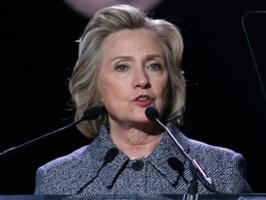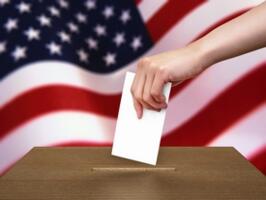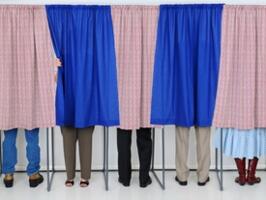51% of Democrats Oppose Their Party’s Superdelegate System
The presidential primary process to choose the Democratic nominee includes the use of superdelegates, individuals selected by the party who can support any candidate at the party's convention regardless of who wins their state's popular vote. But just over half of Democrats cry foul at the system.
Only 30% of Likely Democratic Voters favor the use of superdelegates in the presidential primary process, according to a new Rasmussen Reports national telephone survey. Fifty-one percent (51%) are opposed, while a sizable 19% are undecided. (To see survey question wording, click here.)
Among all voters, just 19% support the superdelegate system, while 65% are opposed. Sixteen percent (16%) are not sure.
The Democratic National Committee’s decision to use superdelegates, many of whom are current and past elected officials, has come under considerable scrutiny - particularly from supporters of Bernie Sanders - for the appearance that the party is trying to rig the election for establishment candidate Hillary Clinton. DNC Chairwoman Debbie Wasserman Schultz has done little to assuage these concerns, saying in one CNN interview that the superdelegates “exist really to make sure that party leaders and elected officials don’t have to be in a position where they are running against grassroots activists.”
Interestingly, voters under 40, perhaps the biggest voting bloc for Sanders, are more supportive of the superdelegate system than their elders. Twenty-four percent (24%) of these voters support the use of superdelegates, compared to 16% of middle-aged voters and 20% of senior citizens. But these younger voters are also the most likely to be undecided about the party's current superdelegate system.
(Want a free daily e-mail update ? If it's in the news, it's in our polls). Rasmussen Reports updates are also available on Twitter or Facebook.
The survey of 1,000 Likely U.S. Voters was conducted on March 30-31, 2016 by Rasmussen Reports. The margin of sampling error is +/- 3 percentage points with a 95% level of confidence. Field work for all Rasmussen Reports surveys is conducted by Pulse Opinion Research, LLC. See methodology.
Democrats are more certain than ever that Hillary Clinton will be their party’s presidential nominee this November.
Seventy-five percent (75%) of Republicans and 71% of voters not affiliated with either major political party oppose the use of superdelegates in the presidential primary process. But superdelegates may be just the solution for Republican party leaders who have a Trump problem.
Thirty percent (30%) of self-described politically liberal voters favor the superdelegate process, compared to 21% of moderates and 12% of conservatives.
Sixty-four percent (64%) of Democrats think their elected leaders in Congress are doing a good job representing their party’s values, while only 30% say their representatives have lost touch with the party’s base. By comparison, 76% of GOP voters think their lawmakers are out of touch.
Only 41% of all voters now think American elections are fair.
Most voters have said for years that member of Congress almost always get reelected because the election rules are rigged to benefit incumbents, not because they do a good job representing their constituents.
At the same time, 55% think the United States is more democratic than most other nations.
Additional information from this survey and a full demographic breakdown are available to Platinum Members only.
Please sign up for the Rasmussen Reports daily e-mail update (it's free) or follow us on Twitter or Facebook. Let us keep you up to date with the latest public opinion news.
The survey of 1,000 Likely U.S. Voters was conducted on March 30-31, 2016 by Rasmussen Reports. The margin of sampling error is +/- 3 percentage points with a 95% level of confidence. Field work for all Rasmussen Reports surveys is conducted by Pulse Opinion Research, LLC. See methodology.
Rasmussen Reports is a media company specializing in the collection, publication and distribution of public opinion information.
We conduct public opinion polls on a variety of topics to inform our audience on events in the news and other topics of interest. To ensure editorial control and independence, we pay for the polls ourselves and generate revenue through the sale of subscriptions, sponsorships, and advertising. Nightly polling on politics, business and lifestyle topics provides the content to update the Rasmussen Reports web site many times each day. If it's in the news, it's in our polls. Additionally, the data drives a daily update newsletter and various media outlets across the country.
Some information, including the Rasmussen Reports daily Presidential Tracking Poll and commentaries are available for free to the general public. Subscriptions are available for $4.95 a month or 34.95 a year that provide subscribers with exclusive access to more than 20 stories per week on upcoming elections, consumer confidence, and issues that affect us all. For those who are really into the numbers, Platinum Members can review demographic crosstabs and a full history of our data.
To learn more about our methodology, click here.





